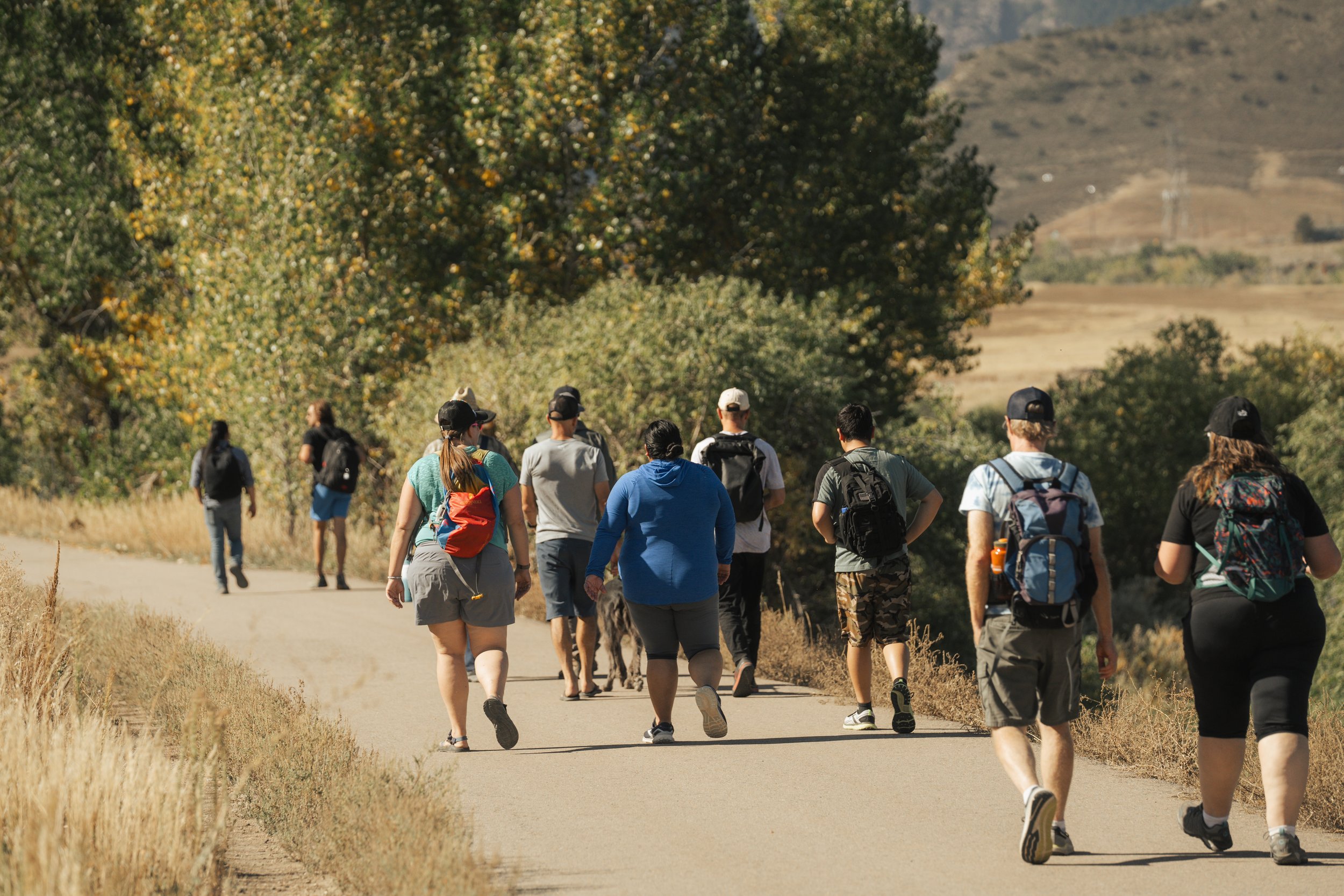
Who We Are
A community for adults affected by neurological challenges through connection with each other and the outdoors.
WE BELIEVE
in the transformative power of the outdoors and belonging.
WE STRIVE
to connect adults with neurological challenges to build a strong, supportive community.
WE ENVISION
a global platform for authentic connections and sharing experiences outside.
HOW WE DO IT
OM Community
We build a virtual and in-person community for people affected by neurological challenges who love the outdoors. The OM Community is available for patients, caretakers, family, friends, and healthcare providers.
OM Meetup Groups
Regional meetup groups strengthen connections and empower people in the OM community to get outside with others in their local area.
OM Scholarship
This scholarship encourages people in the OM community to live big through a funded adventure of their choice.
WHY WE DO IT
Our Story
In 2010, a team came together inspired by a mutual friend’s determination to make something great come from a recent diagnosis of a brain tumor. Everyone shared a link to a neurological challenge (brain tumors, aneurysms, epilepsy, etc.). Their experiences ranged from personal diagnosis to supporting diagnosed family members and friends. The group also shared a passion for the outdoors, an unyielding enthusiasm for life, and a drive to overcome the hardship of a neurological challenge while focusing on quality of life. These commonalities inspired the idea of Outdoor Mindset (OM). Now, the ongoing connections and great experiences fostered by OM continue the story.
We All Know Someone Who Has Faced a Neurological Challenge
In the United States:
Approximately 90,000 people are diagnosed with a primary brain tumor every year.
Nearly 3 million adults have epilepsy.
2.8 million people sustain a traumatic brain injury (TBI) annually.
Almost 1 million people have received a diagnosis of multiple sclerosis (MS).
Social Connections Positively Influence Health
Information is helpful; however, according to researchers and healthcare providers, personally connecting with others has a significant positive impact on patient health.
Getting Outdoors & Being Active Helps
Exposure to the natural environment of the outdoors directly correlates to improved neuropsychological function and behavioral attitudes toward managing challenges in diagnosis. Research has shown physical activity to be a significant factor in improving quality of life indicators among diagnosed individuals.

